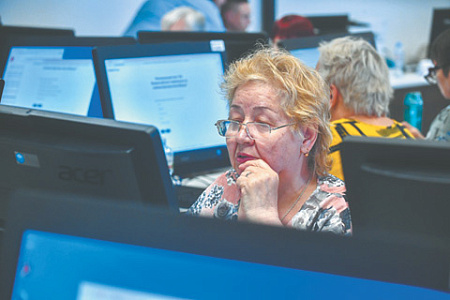
A global debate is intensifying over the purpose of higher education. Many question its necessity for all, suggesting it should be reserved for the elite or streamlined to focus solely on vocational skills and market demands. This narrow view frames education as a simple transaction: a period of study in exchange for a diploma and better job prospects, often overlooking its more profound, intangible benefits.
However, this transactional perspective fails to capture the essence of learning as a continuous, lifelong endeavor. Education is not confined to the lecture halls of youth; it is a dynamic process of expanding one’s horizons, whether through formal programs or the simple pursuit of curiosity at any age. It is this perpetual journey of intellectual and personal growth that holds an often-ignored power.
Recent analysis and research suggest a startling and critical function of education: it serves as a powerful psychological resource for overcoming adversity. Studies have indicated a direct correlation between an individual’s level of education and their resilience to severe psychological distress. The risk of developing post-traumatic stress disorder (PTSD) following life-altering events—such as a life-threatening illness, emotional or physical abuse, or the loss of a loved one—is demonstrably lower in those with more comprehensive educational backgrounds.
This resilience stems not from the diploma itself, but from the intellectual, emotional, and social toolkit that education helps to build. The process of learning cultivates a broader perspective, strengthens problem-solving skills, and enhances one’s ability to critically assess information. This fosters a deep-seated confidence in one’s capacity to navigate and overcome even the most daunting of life’s challenges, turning knowledge into a wellspring of personal strength.
The modern concept of ‘lifelong learning’ perfectly encapsulates this principle, advocating for continuous personal and professional development across all stages of life. Successful initiatives, such as programs promoting ‘positive longevity,’ demonstrate this by focusing not only on the physical health of older adults but also on their emotional, intellectual, and social well-being through continued engagement and learning. This model provides opportunities to refresh one’s knowledge and adapt to new life stages with competence and grace.
Ultimately, beyond imparting practical skills, the greatest gift of education may be the fortification of the human spirit. In an increasingly volatile world, its role in building mental fortitude and the capacity to overcome adversity is an invaluable asset. This transforms education from a mere economic investment into a fundamental pillar of individual resilience and societal stability on a global scale.
